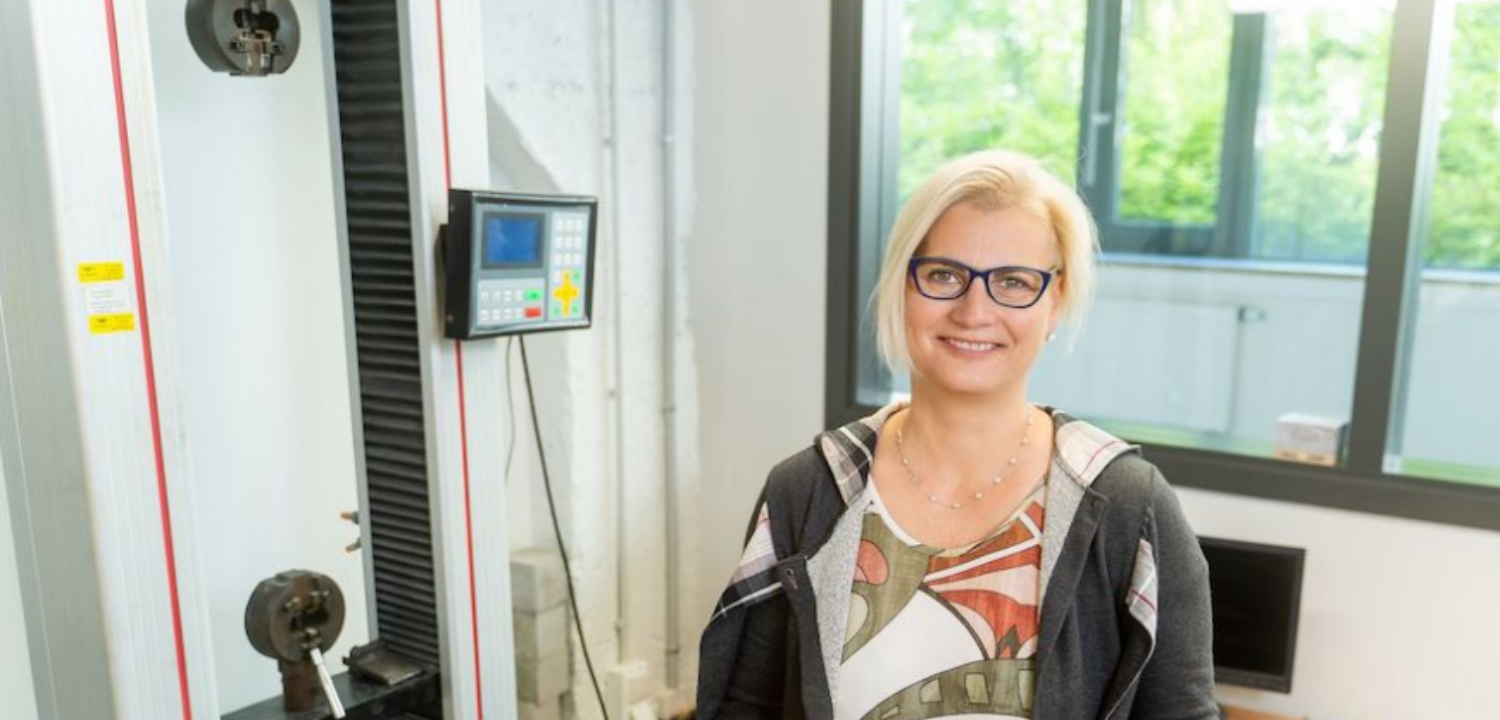In cooperation with international partners from Poland and France, and Cewood, the only producer of fibrolite (wood particleboard) in the Baltics, scientists from Riga Technical University (RTU) Faculty of Civil and Mechanical Engineering are developing innovative construction products for nearly zero energy buildings, using only wood construction residues and by-products. The research is an important contribution of the researchers to the development of a circular economy in the construction sector.
Cewood’s production process generates production residues such as wood shavings, sanding dust and panel off-cuts. These can be used as raw materials for new building materials. RTU researchers are experimenting in the laboratory to produce samples of natural fibre composites made entirely from raw materials derived from production residues and by-products, and supplemented with other natural raw materials, such as hemp shives.
Diāna Bajāre, tenure professor at RTU Faculty of Civil and Mechanical Engineering, leader of the M-era.Net project “Wood waste-based composite materials for high-performance panels for near-zero energy buildings”, shows a slab made only from production residues – sawdust and once-used cement, which has been sieved and fired at a certain temperature, thus reactivating it. The slab is light, but its mechanical properties are sufficient to build small houses. Slab made with hemp shives is slightly more fragile but has better hydrothermal properties. The properties of the composite materials, such as climate resistance, thermal conductivity, etc., will be tested by RTU’s partners in the M-era.Net project – the Warsaw University of Technology in Poland and the University of Savoy Mont Blanc in France. The aim of the project is to develop a new technology for the production of a multi-layer panel from high-performance natural fibre composites, using production residues from both the fibrolite production process and the recycling of fibrolite sheets after building dismantling.
Recycling cement and wood significantly reduces the amount of construction waste and the negative environmental impact of the construction materials industry, and allows sustainable and rational use of local resources, reducing landfilling. It also contributes to the implementation of the principles of the circular economy in construction.
The new construction products are expected to be cost-effective, energy-efficient, environmentally friendly, easily recyclable and low energy intensity. They could be used for building envelopes as well as for thermal insulation, including in passive and near-zero energy buildings.
“As a company that produces acoustic cladding panels using only natural raw materials, thinking about the environment and what we leave for future generations, it is vital for us to work with researchers, universities and experiment to ensure that our product life cycle is sustainable from inception to completion,” says Ingars Ūdris, Member of the Board of Cewood.
In order to validate the technology and test the “behaviour” of the new product in real conditions, a small experimental passive building will be constructed in cooperation with Cewood at the company’s production site in Aluksne at the end of the summer.
The M-era.Net project «Wood waste-based composite materials for high-performance panels for near-zero energy buildings» will run until August 2026. It has a total funding of €1.3 million.
Foto:Vitālijs Vinogradovs, RTU
